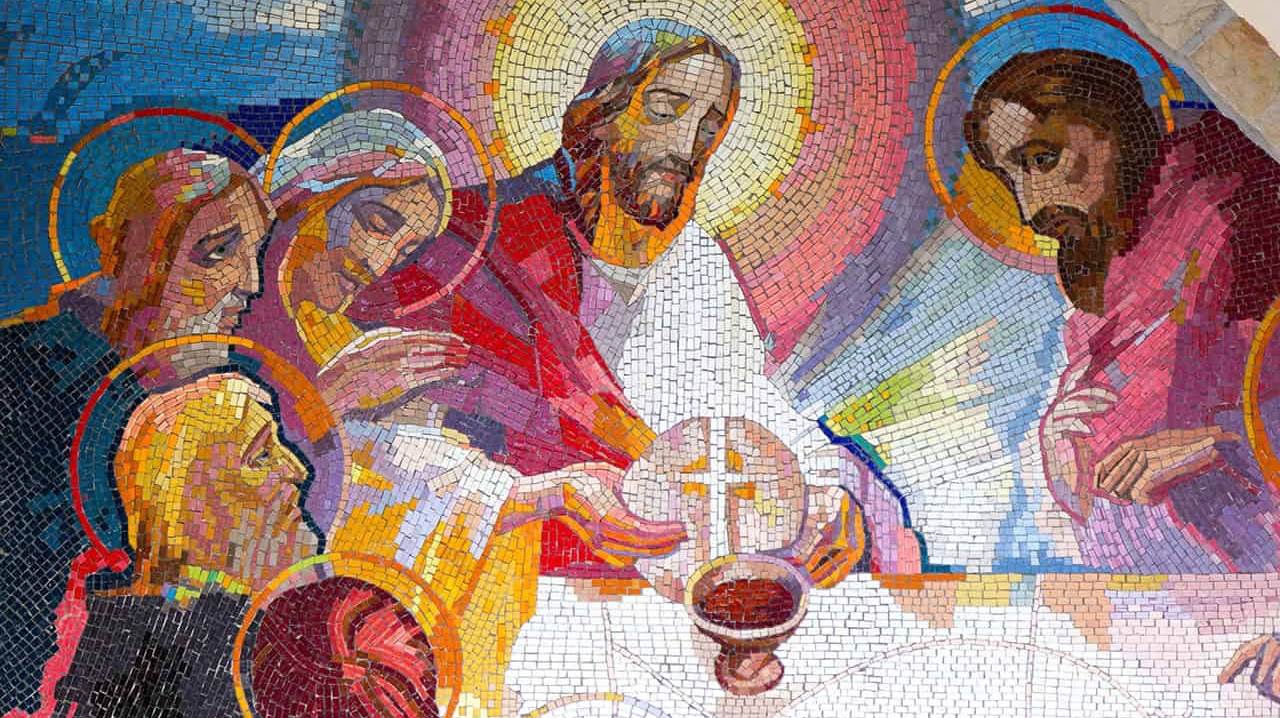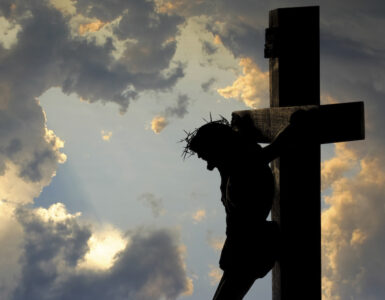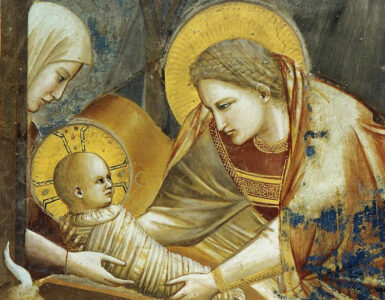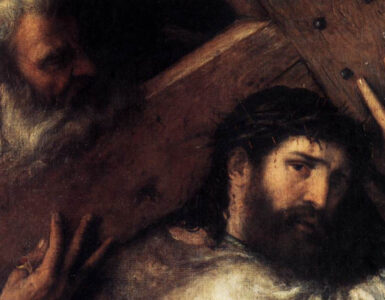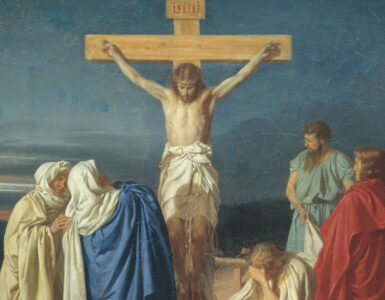I have always been intrigued by the beautiful praise song by Mark Altrogge Thank you for the Cross the Mighty Cross. Yes, the Cross of Jesus is, in fact, the mighty Cross. Obviously, it is mighty thanks to Jesus who is crucified on that cross.
Various saints and theologians helped me realize, through their writings, the significance of this powerful praise song Thank you for the Cross your mighty Cross. Christ’s Cross is mighty because I, as a Christian, am challenged to follow my Master in order to accept, to put it technologically, the Wi-Fi of redemption brought to me by Jesus. Hans Urs von Balthasar, undoubtedly one of the great theologians of the twentieth century, tells us: It is to the Cross that the Christian is challenged to follow his Master: no path of redemption can make a detour around it. Jesus was so clear about this when he solemnly told us: If any man would come after me, let him deny himself and take up his cross and follow me (Matt 16:24).
The Cross is mighty because it is interconnected with the fact of Resurrection. The same theologian tells us: If one does away with the fact of the Resurrection, one also does away with the Cross, for both stand and fall together, and one would then have to find a new center for the whole message of the gospel. If one dares separating the Cross from the Resurrection one enters into the reality of hell. However, the Cross and the Resurrection enlighten and support one another because in themselves they form a unity of redeemed people in that splendid solidarity of hearts as well as consolidated with one hope. Personally speaking, Hans Urs von Balthasar encourages me to think this way when he says: Hell is to be contemplated strictly as a matter which concerns me alone. As part of the spiritual life it belongs behind the ‘closed door’ of my own room. From the standpoint of living faith, I cannot fundamentally believe in anyone’s damnation but my own; as far as my neighbor is concerned, the light of resurrection can never be so obscured that I would be allowed or obliged to stop hoping for him.
The Cross is mighty because it necessarily passes through the often hated and rejected reality of death. Hans Urs von Balthasar says: The first thing the Cross does is cross out the world’s word by a Wholly-Other Word, a Word that the world does not want to hear at any price. For the world wants to live and rise again before it dies, while the love of Christ wants to die in order to rise again in the form of God on the other side of death, indeed, IN death.
For the Doctor Communis, St Thomas Aquinas, the Cross is mighty because it is a very valid school for every virtue that exists under the sun. Just listening to his Collatio 6 super Credo in Deum, which is a conference given by this eminent medieval philosopher and theologian, suffices to drive this point home. He teaches us:
Why did the Son of God have to suffer for us? There was a great need, and it can be considered in a twofold way: in the first place, as a remedy for sin, and secondly, as an example of how to act. It is a remedy, for, in the face of all the evils which we incur on account of our sins, we have found relief through the passion of Christ. Yet, it is no less an example, for the passion of Christ completely suffices to fashion our lives. Whoever wishes to live perfectly should do nothing but disdain what Christ disdained on the cross and desire what he desired, for the cross exemplifies every virtue.
If you seek the example of love: “Greater love than this no man has, than to lay down his life for his friends.” Such a man was Christ on the cross. And if he gave his life for us, then it should not be difficult to bear whatever hardships arise for his sake.
If you seek patience, you will find no better example than the cross. Great patience occurs in two ways: either when one patiently suffers much, or when one suffers things which one is able to avoid and yet does not avoid. Christ endured much on the cross, and did so patiently, because when he suffered he did not threaten; he was led like a sheep to the slaughter and he did not open his mouth. Therefore Christ’s patience on the cross was great. In patience let us run for the prize set before us, looking upon Jesus, the author and perfecter of our faith who, for the joy set before him, bore his cross and despised the shame.
If you seek an example of humility, look upon the crucified one, for God wished to be judged by Pontius Pilate and to die.
If you seek an example of obedience, follow him who became obedient to the Father even unto death. For just as by the disobedience of one man, namely, Adam, many were made sinners, so by the obedience of one man, many were made righteous.
If you seek an example of despising earthly things, follow him who is the King of kings and the Lord of lords, in whom are hidden all the treasures of wisdom and knowledge. Upon the cross he was stripped, mocked, spat upon, struck, crowned with thorns, and given only vinegar and gall to drink.
Do not be attached, therefore, to clothing and riches, because “they divided my garments among themselves.” Nor to honours, for he experienced harsh words and scourgings. Nor to greatness of rank, for “weaving a crown of thorns they placed it on my head.” Nor to anything delightful, for “in my thirst they gave me vinegar to drink.”
If Christ’s Cross is mighty because it exemplifies all virtues than those who embrace it, even in their weakness, they all bear the signals of that divine destiny with Christ. Let us not forget what St Paul tells us in Romans chapter 6: But if we have died with Christ, we believe that we shall also live with him. For we know that Christ being raised from the dead will never die again; death no longer has dominion over him. The death he died he died to sin, once for all, but the life he lives he lives to God (Rom 6:8-10). Hans Urs von Balthasar have an interesting reflection which can easily serve as a relevant comment on this biblical text written by the Apostle of the Gentiles when he writes: For all his gentleness and humility unto death on the Cross, God does not relinquish his attribute of being judge and consuming fire. Nothing is more majestic than his Passion; even his anxiety is sublime. And God never denies his attributes to those who are his light in the world. They shine like stars in the cosmos, and even their anxiety, if God allows it, bears the marks of their divine destiny.
As a conclusion to these simple reflections why the Cross of Christ is mighty I would like to resort myself to the prayer written by St Thomas Aquinas wherein he encourages us to look at the Crucifix. The Crucifix remains the mirror thanks to which we can see how God loves us and how we can love Him back by loving Him in the least of our brothers and sisters.
If you would like to know God, LOOK AT THE CRUCIFIX! If you would like to love God, LOOK AT THE CRUCIFIX! If you want to serve God, LOOK AT THE CRUCIFIX! If you hope for eternal Happiness, LOOK AT THE CRUCIFIX! If you wonder how much God loves you, LOOK AT THE CRUCIFIX! If you wonder how He tries to prevent you from the yawning jaws of hell, LOOK AT THE CRUCIFIX! If you wonder how much He will help you to save your immortal soul, LOOK AT THE CRUCIFIX! If you wonder how much you should forgive others, LOOK AT THE CRUCIFIX! If you wonder how much your faith demands of you, in humility, poverty, charity, meekness and every virtue, LOOK AT THE CRUCIFIX! If you want to know what unselfishness and generosity are, LOOK AT THE CRUCIFIX! If you wonder how far your own unselfishness should go to bring others to Christ, LOOK AT THE CRUCIFIX! If you want to understand the need for self-denial and mortification, LOOK AT THE CRUCIFIX! If you wish to live well, LOOK AT THE CRUCIFIX! If you wish to die well, LOOK AT THE CRUCIFIX!




